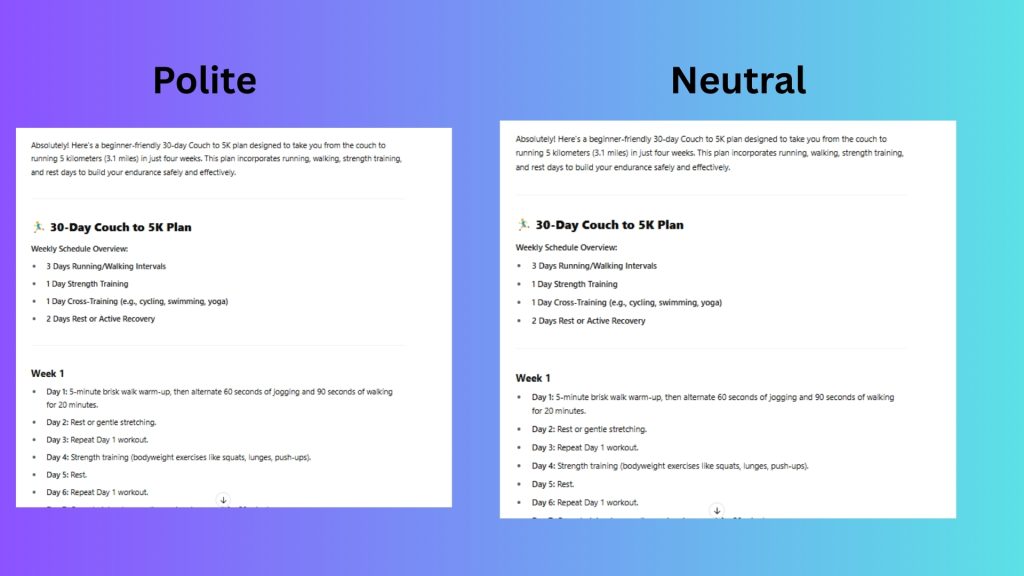The Hidden Price of Courtesy: How “Please” and “Thank You” Drain AI Resources

The Unexpected Cost of Digital Manners
OpenAI CEO Sam Altman recently made headlines with an unexpected disclosure. Common courtesies like “please” and “thank you” in ChatGPT conversations cost the company tens of millions annually. This revelation emerged during a casual exchange on X (formerly Twitter), where Altman called the expense “money well spent.” Subsequently, the statement ignited discussions about AI’s hidden operational costs and environmental impact.
How Politeness Triggers Computation
Each polite phrase triggers complex computational processes. ChatGPT’s architecture treats social niceties as meaningful input components. Consequently, the system analyzes these courtesies through its large language models, requiring additional processing power. Microsoft’s WorkLab researchers found AI systems mirror users’ communication styles, demanding up to 15% more energy for polite exchanges. As a result, this mirroring effect extends response length and complexity.

The Token Economy of Courtesy
The financial burden stems from ChatGPT’s token-based structure. Every word influences computational load and electricity consumption. Currently, industry analysts track over 1 billion daily queries across the platform. For instance, standard interactions consume 2.9 watt-hours each, enough to power an LED bulb for 28 hours. Although newer models like GPT-4o-mini have reduced energy use to 0.3 watt-hours per response, scale magnifies costs with 150 million weekly active users.
User Behavior Patterns and Motivations
User behavior patterns reveal surprising insights. Recent surveys show 67% of Americans use manners with AI assistants. Specifically, motivations split between moral principles (55%) and precaution against hypothetical machine uprisings (12%). Meanwhile, this trend reflects AI’s rapid normalization in daily life. Many users now treat chatbots as digital colleagues rather than tools. In some cases, people adopt extreme etiquette, using honorifics like “Your Eminence” or crafting elaborate gratitude disclaimers.
Environmental Consequences of AI Politeness
Energy experts warn about broader environmental consequences. Data centers already consume 2% of global electricity, a figure projected to triple by 2030. Additionally, each ChatGPT interaction generates 0.23 grams of CO2 emissions. When combined, polite exchanges collectively produce nearly 500 metric tons of daily carbon output. To put this in perspective, it equals 108 gasoline-powered vehicles driven for a year. Therefore, the environmental impact extends beyond OpenAI’s financial statements.
Comparing Emissions and Energy Use
Moreover, the cumulative effect of polite phrases significantly increases energy consumption. While a single polite interaction may seem trivial, multiplied by millions daily, it adds up quickly. For example, cutting just a few extra words could reduce electricity use substantially. This fact has led some experts to call for more efficient AI usage habits.
Politeness and AI Response Quality
Microsoft’s conversational AI team presents a counterargument. Their research shows politeness enhances output quality. For example, 2025 benchmark tests revealed polite prompts yield 18% more accurate responses. Furthermore, algorithmic hallucinations decreased by 32% compared to curt commands. “The system isn’t feeling appreciated,” explains lead engineer Maria Chen. “However, clear intent signaling through polite language improves response precision.”
Balancing Courtesy with Sustainability
Society faces complex questions about digital etiquette. While advocates aren’t suggesting discarding basic civility, energy researchers propose streamlining interactions. Specifically, concise prompts could significantly reduce energy consumption. By eliminating three polite phrases daily, users might save enough electricity to charge 22 million smartphones annually. Ultimately, the challenge lies in balancing social norms with environmental responsibility.
Looking Ahead: AI Growth and Transparency
Industry analysts project continued growth in AI interactions. As adoption increases, so will energy demands. Currently, OpenAI’s transparency about costs sets an important precedent. Likewise, other AI developers might follow with their own disclosures. Consequently, this openness could drive innovation in energy-efficient AI systems.
Cultural Impact on AI Development
The debate extends beyond technical specifications. Cultural norms increasingly influence AI development. Moreover, users’ expectations shape how systems respond and evolve. This feedback loop creates unique challenges for engineers. Therefore, they must balance user preferences with sustainable practices.
Educating Users for Sustainable AI Use
Educational initiatives might help address the issue. Teaching users about AI’s environmental impact could change behavior. Meanwhile, simple changes in phrasing could collectively save significant resources. However, preserving human courtesy remains important in human-AI interactions.
Technological Innovations on the Horizon
Future developments might offer solutions. For instance, advances in quantum computing could reduce energy demands. Similarly, more efficient algorithms might process polite phrases without extra costs. Until then, both users and developers share responsibility for sustainable AI use.
Continuing the Conversation
The discussion started by Altman’s tweet continues evolving. It highlights the complex relationship between technology and society. As AI becomes more prevalent, these discussions will grow in importance. In the end, they will shape how humanity coexists with increasingly intelligent machines.

